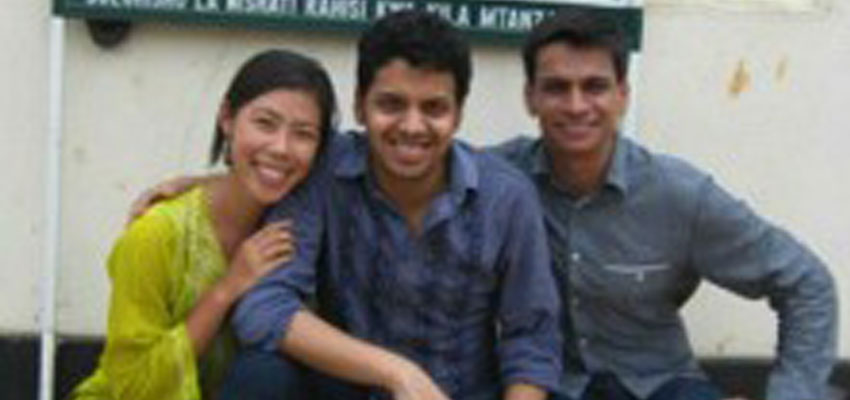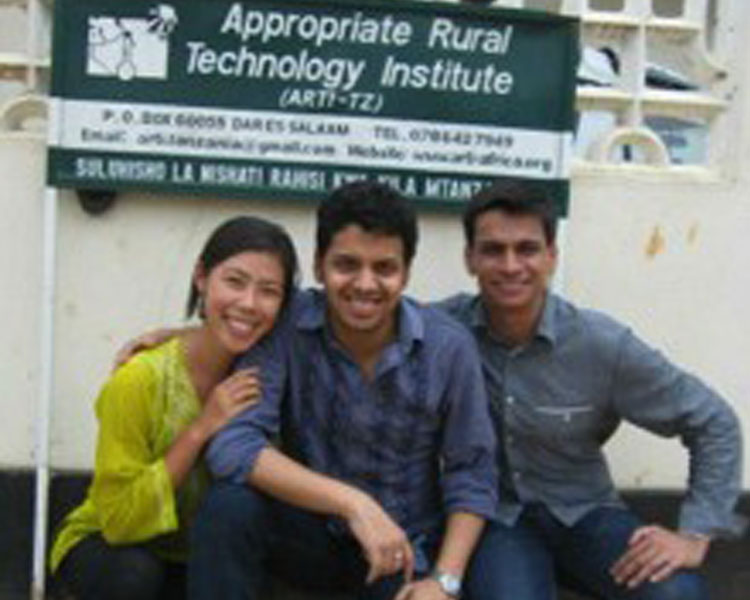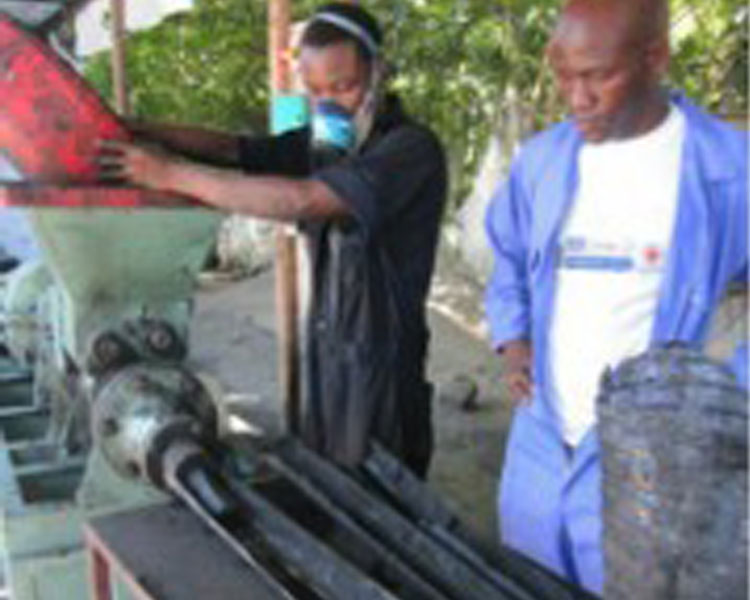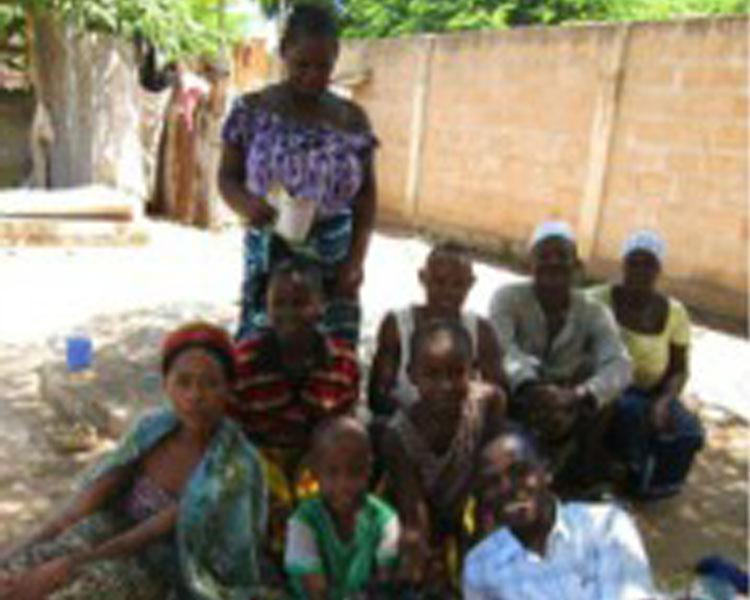
Ali Kamil, Rajat Sethi and I (pictured left) are currently in Dar es Salaam, Tanzania, as part of D-Lab Scale-Up’s Harvest Fuel Initiative (HFI). HFI is collaboration with the New York NGO, The Charcoal Project.
We are working with Appropriate Rural Technology Institute, Tanzania (ARTI-TZ), a Tanzanian not-for-profit company that works to promote the manufacturing and use of charcoal briquettes from agricultural waste and other dry biomass. Our MIT Sloan team is assisting ARTI-TZ in strategizing its commercialization efforts.
The overall objective of the project is to enable a fuel switch from unsustainable charcoal to sustainable non-wood charcoal in Tanzania. Over 90% of Tanzanian households use wood charcoal as their primary source of fuel. However, traditional charcoal production has led to severe deforestation in Tanzania, causing environmental stress and degradation, compromising watershed management, and increasing vulnerability to climate change. Tanzania has lost approximately 15% of its forest cover and more than 37% of its forest and woodland habitat. About 70% of the deforestation is due to the harvesting of wood for fuel primarily by urban households. Dar es Salaam alone uses approximately 500,000 tons of wood charcoal annually and the amount of wood charcoal consumed is expected to rise further in coming years.

Given this background, ARTI-TZ has been developing the non-wood charcoal industry in Tanzania on a commercial scale. It has been instrumental in establishing two Community Based Enterprises, which together will have the capacity to produce 2,000 tons of charcoal briquettes per year by September 2013. ARTI has also trained and equipped over 700 char-powder producers and will train additional 700 producers over the next six months, providing them with income generating opportunities. (A production site at one of the Community Based Enterprises in Bagamoyo pictured left.)
By replacing wood charcoal with ARTI’s agri-waste charcoal, it is possible to improve the livelihoods of millions of people, increase natural carbon sequestration and support communities’ ability to respond to the challenges caused by climate change.
In order to develop effective consumer awareness, marketing, and policy intervention campaigns for ARTI, we have been interviewing various stakeholders in the charcoal value chain. In two weeks, we have interviewed 52 households and 12 institutions including hotels, retailers, restaurants, a school, and a hospital. We have also interviewed people working along the charcoal supply chain, such as transporters/suppliers, wood charcoal producers, and char-powder producers.

In the following week, we plan to complete the consumer interviews, collect user feedback on charcoal briquettes, and undertake brand perception surveys to establish a locally integrated brand for ARTI-TZ’s charcoal briquettes. We also plan to interview 10 policy-making groups, which will help us evaluate the current initiatives being pursued by the government to support the charcoal industry.
One of the most rewarding moments for me so far has been receiving direct feedback from household users (one household pictured left) who have tried samples of ARTI-TZ’s agri-waste charcoal briquettes. Some have texted me back, wanting to visit our office to purchase a few bags of charcoal – a promising sign that we are heading towards the right direction.

--------------------------------
Team Bio
Ali Kamil is a first year student at the Sloan School of Management and School of Engineering’s fellows program. Prior to MIT he spent six years as a corporate strategy consultant advising leading Fortune 100 clients within the media, telecoms, and high tech domains. He is interested in social entrepreneurship and using ICT-based technologies for bridging the gap between developed and developing nations. He is a cofounder of BEEJLI Inc. that provides low-cost solar lighting solutions to Base-of-the-Pyramid populations in South Asia. Originally form Pakistan, Ali has an undergraduate degree in Computer Science from Georgia Institute of Technology.
Rajat Sethi is currently pursuing a 3 year Joint Master’s program (2012-15) - MBA at MIT Sloan School of Management and Master in Public Administration (MPA) at Harvard University. He has been working as a social entrepreneur at the intersection of Technology, Policy and Tech-aided Development in sectors spanning across Rural Telecom Infrastructure, Clean Energy - Solar Power and its derivative products for Agribusiness. He is also currently working as a Short Term Temporary at IFC, World Bank Group on Impact Investment Strategy. Rajat, originally from New Delhi – India, has worked in India, Bangladesh, Sri Lanka, Bhutan, Nigeria & South Africa.
Elli Suzuki is a candidate for Master of Science in Management Studies from MIT Sloan and MBA from HEC Paris. Previously, she worked at Citigroup, where she marketed multi-asset investment solutions to institutional clients from Asia, Europe and North America. She is interested in BoP clean energy investment in Sub-Saharan Africa and spent the summer in Dar es Salaam where she designed the business model for African Solar Rise, an NGO providing solar energy solutions and advisory service to small-scale farmers in Tanzania. She is originally from Japan and has lived in Japan, US, and France.

